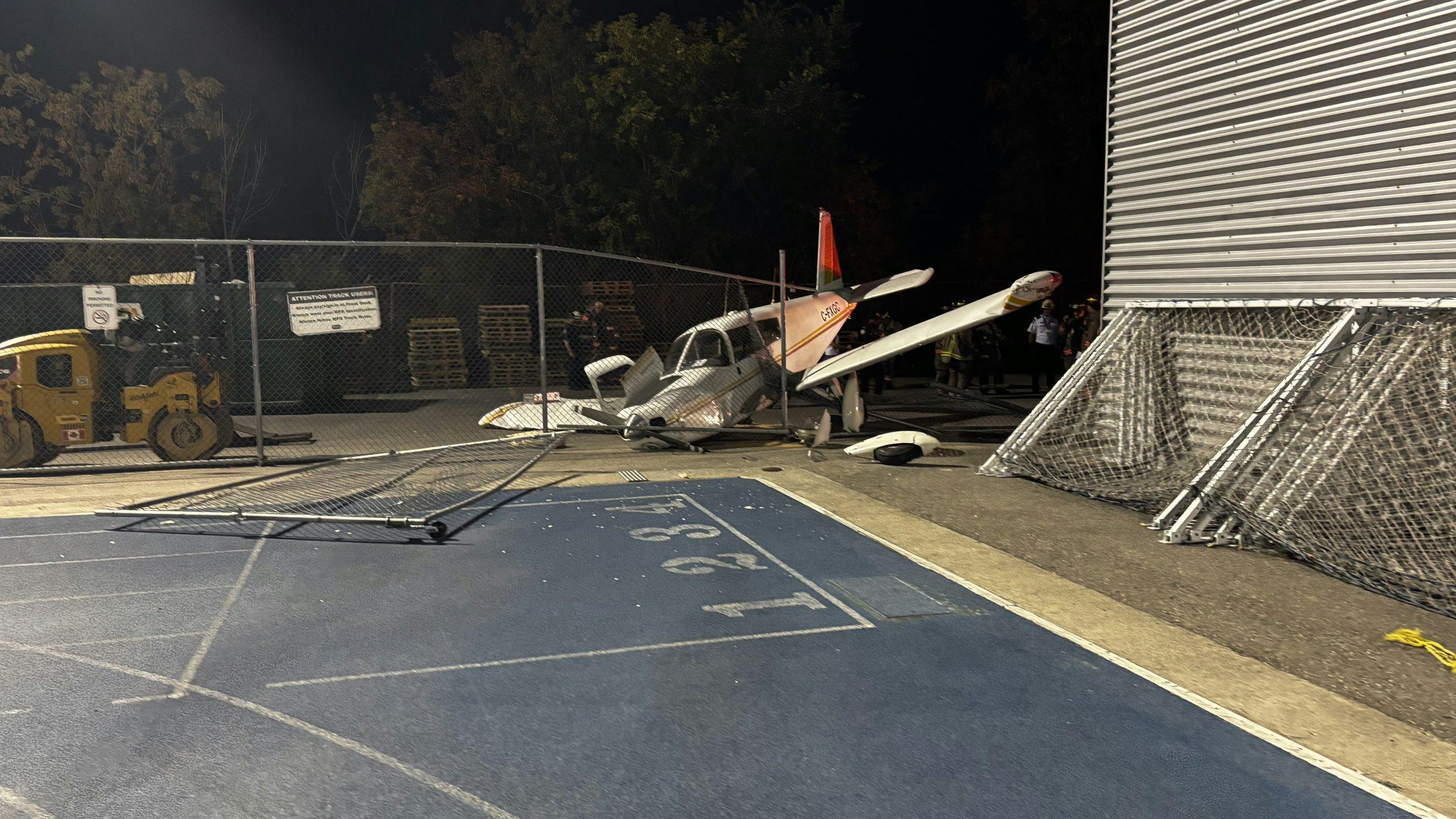AeroGenie — Your Intelligent Copilot.
Trending
Categories
Engine Failure Causes Small Plane Crash Near Toronto

Engine Failure Causes Small Plane Crash Near Toronto
A small aircraft crash in Toronto on Monday evening has been attributed to engine failure, according to the Transportation Safety Board of Canada (TSB). The incident involved a Piper PA-28-140, a single-engine Piper Cherokee rented through the aviation rental company Flight Club. The event has reignited discussions about aviation safety protocols and the reliability of small aircraft.
Emergency Landing in a Residential Area
The Piper Cherokee was en route from Orillia, Ontario, to Toronto’s Billy Bishop Airport when it experienced engine failure shortly after 8 p.m. The pilot was forced to execute an emergency landing in a field adjacent to Monarch Park Collegiate Institute, located in the city’s east end. The plane came to rest just meters from a soccer goal on a sports pitch, narrowly avoiding players engaged in a game at the time. Emergency responders confirmed that the pilot and two passengers escaped without injury, and no harm was reported on the ground.
Flight Club acknowledged that the aircraft was rented through its platform and confirmed the engine was not operational during the forced landing. Ehsan Monfared, co-founder of Flight Club, praised the pilot’s skill in managing the emergency, stating, “This forced approach was executed with great precision and focus to have such a result over such a densely populated area.” The company is cooperating fully with authorities and is evaluating additional safety measures in response to the incident.
Photographs from the scene depict the plane largely intact but resting nose-down on pavement, with damage to a chain-link fence beneath the nose. The area near the soccer pitch entrance was cordoned off with yellow caution tape. Despite the proximity of the crash, classes at Monarch Park Collegiate Institute proceeded as usual the following day, according to the Toronto District School Board.
Ongoing Investigation and Industry Implications
The TSB initiated its investigation on Monday night, conducting interviews with witnesses and those involved in the incident. While the precise cause of the engine failure remains undetermined, Flight Club has suggested potential factors including mechanical malfunction, human error, or fuel contamination.
The crash has intensified public concern regarding the dependability of small aircraft and may prompt heightened regulatory scrutiny. Industry analysts note that such incidents often trigger temporary market reactions, including declines in stock prices for aircraft manufacturers and related sectors. Competitors may respond by implementing enhanced safety protocols and issuing public reassurances to maintain consumer confidence.
Unlike other recent aviation accidents involving fatalities, this incident resulted in no injuries, a fact described as “fortunate” by company representatives and safety officials alike. The Transportation Safety Board continues its investigation into the circumstances surrounding the engine failure and emergency landing.

Emirates Unveils Cabin Design for New Boeing 777X

Eighteen Years On, the Airbus A380 Remains Central to a $34 Billion Airline

How a boom in luxury airline seats is slowing down jet deliveries

Navitaire Outage Attributed to Planned Maintenance

DigiYatra Debuts Outside Aviation at India AI Impact Summit

Vietnam Orders Strengthen Boeing’s Commercial Outlook

Airbus Signals Uncertainty Over Future A400M Orders

JobsOhio Awards $2 Million Grant to Hartzell Propeller for Innovation Center

Collins Aerospace Tests Sidekick Autonomy Software on YFQ-42A for U.S. Air Force CCA Program

How the Airbus A350-1000 Compares to the Boeing 777
